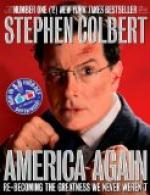At the far end of the train, away from the engine, the passengers’ car had been placed, and as in front of it a long, long line of low-stacked sinuous trucks slipped along in the rear of the engine, all was open view before us; and all day long, as the engine trudged onwards—hands in pockets, so to speak, and whistling merrily as it trudged—I stood beside the Maluka on the little platform in front of the passengers’ car, drinking in my first deep, intoxicating draught of the glories of the tropical bush.
There were no fences to shut us in; and as the train zig-zagged through jungle and forest and river-valley—stopping now and then to drink deeply at magnificent rivers ablaze with water-lilies—it almost seemed as though it were some kindly Mammoth creature, wandering at will through the bush.
Here and there, kangaroos and other wild creatures of the bush hopped out of our way, and sitting up, looked curiously after us; again and again little groups of blacks hailed us, and scrambled after water-melon and tobacco, with shouts of delight, and, invariably, on nearing the tiny settlements along the railway, we drove before us white fleeing flocks of goats.
At every settlement we stopped and passed the time of day and, giving out mail-bags, moved on again into the forest. Now and again, stockmen rode out of the timber and received mail-bags, and once a great burly bushman, a staunch old friend of the Maluka’s, boarded the train, and greeted him with a hearty hand-shake.
“Hullo! old chap!” he called in welcome, as he mounted the steps of the little platform, “I’ve come to inspect your latest investment”; but catching sight of the “latest investment” he broke into a deafening roar.
“Good Lord!” he shouted, looking down upon me from his great height, “is that all there is of her? They’re expecting one of the prize-fighting variety down there,” and he jerked his head towards the Never-Never. Then he congratulated the Maluka on the size of his missus.
“Gimme the little ’uns,” he said, nearly wringing my hand off in his approval. “You can’t beat ’em for pluck. My missus is one of ’em, and she went bush with me when I’d nothing but a skeeto net and a quart-pot to share with her.” Then, slapping the Maluka vigorously on the back, he told him he’d got some sense left. “You can’t beat the little ’uns,” he declared. “They’re just the very thing.”
The Maluka agreed with him, and after some comical quizzing, they decided, to their own complete satisfaction, that although the bushman’s “missus” was the “littlest of all little ’uns, straight up and down,” the Maluka’s “knocked spots off her sideways.”
But although the Territory train does not need to bend its neck to the galling yoke of a minute time-table, yet, like all bush-whackers, it prefers to strike its supper camp before night-fall, and after allowing us a good ten minutes’ chat, it blew a deferential “Ahem” from its engine, as a hint that it would like to be “getting along.” The bushman took the hint, and after a hearty “Good luck, missus!” and a “chin, chin, old man,” left us, with assurances that “her size ’ud do the trick.”




